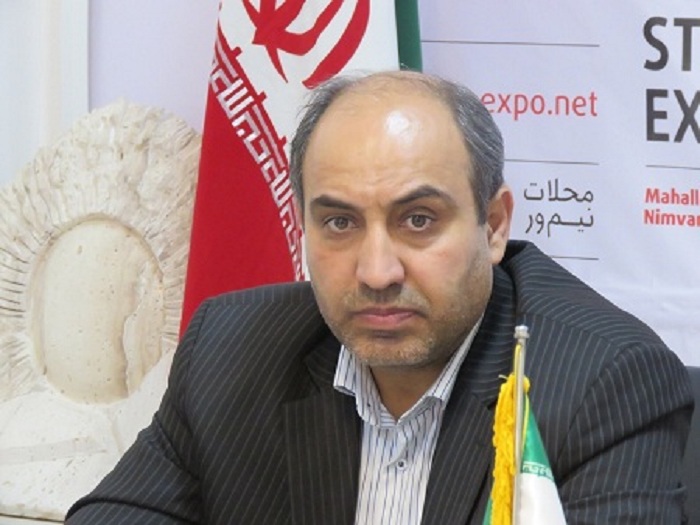Increasing Central Province Exports Priority

The head of the provincial industry, mining and trade organization said the province's capabilities and benefits were key to its 20 industrial districts, sixteen industrial zones and ten industrial hubs for interactions and exchanges as well as the development of cross-border trade.
Mohammad Reza Hajipour said at a joint meeting with industry executives and executives with economic consultants that identifying more of the central province's capabilities along with taking advantage of economic advisors' experiences could be an effective step in economic prosperity.
He highlighted the role of the central province in the country's economy as it occupied the position of one of the first four industrial hubs of the country and added: Central province with regard to the mother industries, downstream industries and manufacturing clusters besides Half a century of experience can contribute to the boom.
Hajipour said: Central Province also ranks third in science and technology parks and is capable of providing technical engineering services to other countries.
He also said rail clusters, construction of Arak oil and aluminum equipment, Mahal and Nimvar cluster stone, Trico and Gul district of Delijan wetlands and water insulation are important advantages of the province and said: By interacting and coordinating with economic advisors of the country we can see optimal use of These are the potentials.
"We strive to make the best use of the technological know-how of other countries in this field, and to achieve better quality products," said the head of the industry, mining and trade organization.
"The world has been able to achieve enormous numbers in commerce through fast and easy communications," said Markazi, general manager of the provincial customs.
Mehdi Mirasharrafi referred to the geographical algebra that is related to landlocked countries and noted: Twenty-eight countries are in geographic algebra and eighteen of these countries are located around Iran, according to UNIDO. He has mentioned Iran as an exceptional and unique opportunity.
He continued: According to UNIDO's proposal, it was suggested that Iran should choose a free zone in the ports of several thousand kilometers and for this purpose it has proposed Bandar Abbas shores through which the transit area of Iran. Take over.
The General Manager of Markazi Province Customs stated that in the three ports of sea ports accounted for more than ninety five percent of the total goods of the world: According to the status of Iran, UNIDO proposes transit cargo through Bandar Abbas Iran. Slow.
Mir Ashrafi continued: UNIDO further proposes Iran to create a global airport inside the country to handle the transit of passengers in the region.
He pointed out that 21st Century Asia is the largest port in the world, including Singapore in Asia and in our region Jabal Ali is the seventh in the world, but unfortunately our port is in the position of fifty two to sixty. If UNIDO's offer could have been the first in the region, the Arab countries would have taken that opportunity.
The general manager of the Central Provincial Customs Office pointed out to Dubai that we will build a history that will boast future generations: We must do something that our future historians will not blame.
The Director General of the Central Provincial Customs Office declared the country desirable despite having one percent of land, one percent of the world's population and seven and a half percent of resources: Despite these conditions, we have less than 60 billion dollars in trade volume, while Given the potential of the country, we could see about $ 80 billion in trade volume.
Mir Ashrafi covers an area of twenty-nine thousand square kilometers in the Central Province and stated: The Netherlands with an area of thirty-two thousand square kilometers has exported six hundred trillion dollars and ranks fifth in the world, while It is only three thousand square kilometers larger than the central province.
He highlighted the potential of the central province in terms of production, trade and export, and emphasized that we need careful planning and strong credits to thrive and prosper in all areas.
The Director General of Customs said that the most complex issue in post-production country is trade and said: "More than forty organizations are involved in trade and in this situation many laws and in many cases contradict trade.
Mirasharrafi said that half of the country's trade is from smuggling, citing the complexity of official trade, adding that the most obvious example is the diversification of customs tariffs, which is extremely harmful as well as irrational tariffs. That promotes informal trade or smuggling.
He said: A fundamental revolution in the business debate must be made to move away from the current situation.
The general manager of the province's customs office pointed to the country's customs interaction with the University of Tehran to launch smart systems and said: "This system will greatly help our business empowerment."
Pointing out that every day the Customs stop adding 1% to the finished price, he added: "Iran Customs is trying to facilitate import and export in the best possible way and we have consumer and producer satisfaction."
* ISNA










